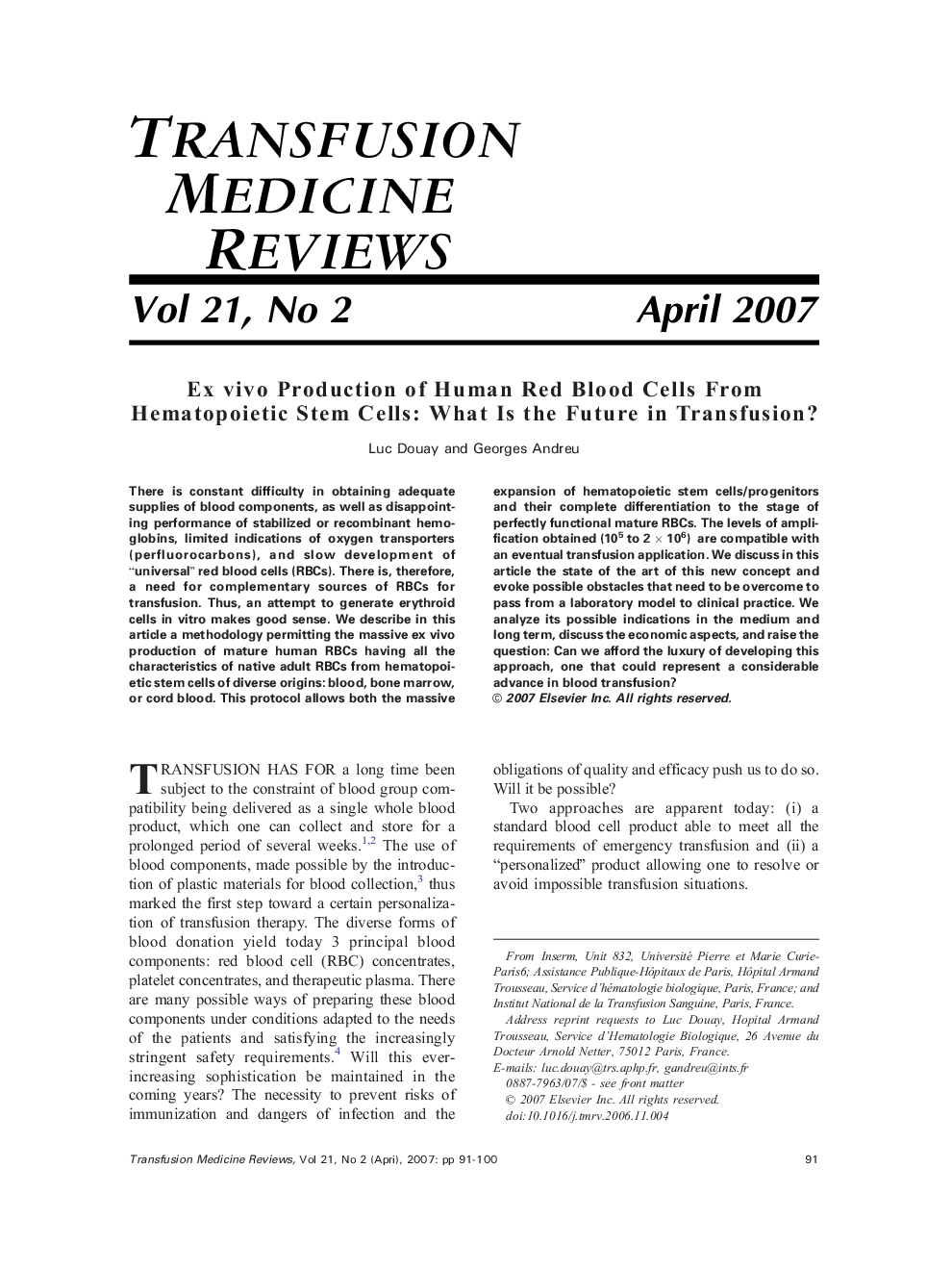| Article ID | Journal | Published Year | Pages | File Type |
|---|---|---|---|---|
| 3336914 | Transfusion Medicine Reviews | 2007 | 10 Pages |
There is difficulty in obtaining adequate supplies of blood components, as well as disappointing performance of stabilized or recombinant hemoglobins, limited indications of oxygen transporters (perfluorocarbons), and slow development of “universal” red blood cells (RBCs). There is, therefore, a need for complementary sources of RBCs for transfusion. Thus, an attempt to generate erythroid cells in vitro makes good sense. We describe in this article a methodology permitting the massive ex vivo production of mature human RBCs having all the characteristics of native adult RBCs from hematopoietic stem cells of diverse origins: blood, bone marrow, or cord blood. This protocol allows both the massive expansion of hematopoietic stem cells/progenitors and their complete differentiation to the stage of perfectly functional mature RBCs. The levels of amplification obtained (105 to 2 × 106) are compatible with an eventual transfusion application. We discuss in this article the state of the art of this new concept and evoke possible obstacles that need to be overcome to pass from a laboratory model to clinical practice. We analyze its possible indications in the medium and long term, discuss the economic aspects, and raise the question: Can we afford the luxury of developing this approach, one that could represent a considerable advance in blood transfusion?
